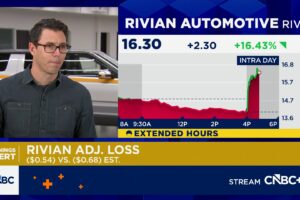
(Bloomberg Opinion) — The shock arrest and defenestration in 2018 of Carlos Ghosn, a jet-setting polyglot who bestrode the car industry for decades as head of the Renault-Nissan alliance, always had a cinematic quality to it: There was his detention in Japan shortly after disembarking from a private aicraft; the allegations (strenuously denied by Ghosn) of undeclared income and misappropriated funds; the grim conditions in which he was held and monitored by Japanese prosecutors; and the speculation that his downfall was really a ploy to prevent him bringing about a deeper union between Nissan and Renault that Tokyo didn’t want.
But even Netflix, which Ghosn has reportedly become fond of watching since his release on bail, wouldn’t have scripted a denouement as far-fetched as this. On Tuesday, the former boss of both Nissan Motor Co. and France’s Renault SA confirmed that he had fled Japan and was now in Lebanon — from where his grandparents hailed, and from where he’s unlikely to be extradited.
How he managed to slip from the grip of the Japanese justice system is a mystery. Prosecutors there kept him under close surveillance and his local lawyers are still in possession of his various passports (he has French, Brazilian and Lebanese citizenship). With Ghosn’s trial set to overshadow the 2020 Tokyo Olympics, perhaps Japan simply wanted the embarrassment gone. Either that, or the country’s famously severe legal system has just suffered a most shocking reversal.
Left marooned by Fiat Chrysler Automobiles NV’s decision to merge with Peugeot SA and battling falling sales and profitability, Renault and Nissan were already in crisis. Now the maligned architect of their alliance is free to settle scores with both companies. It was Nissan that immediately dismissed Ghosn from the chairman’s role after his arrest and an internal inquiry into his activities; he later resigned as chief executive officer and chairman of Renault, which subsequently outlined its own concerns about his expenses.
Instead of hiding out in Lebanon, he should think seriously about returning to France to put the record straight if his prime fear really was a rigged Japanese legal system.
An uncomfortably high number of criminal cases brought in Japan end in conviction and there’s plenty about Ghosn’s pre-trial treatment that warranted criticism: His solitary confinement, interrogation without a lawyer present and a ban on seeing his wife all cast a poor light on Japanese justice.
Hence Ghosn’s claims on Tuesday that he isn’t fleeing from justice but rather from “injustice.” In Lebanon he’s sure to be welcomed as a returning hero (billboards there declared “We are all Carlos Ghosn” in the wake of his arrest) but it’s doubtful that Renault and France would respond similarly.
Since Ghosn’s arrest a picture has emerged of a brilliant but autocratic leader who felt he was under-appreciated, even with a $17 million pay packet and Renault-Nissan footing the bill for various foreign homes. A Marie Antoinette-themed party thrown at Versailles for his wife (with Renault picking up the tab) was symptomatic of a corporate leader who made light of corporate governance norms. In September he settled charges brought by the U.S. Securities and Exchange Commission that he and Nissan had failed to disclose more than $140 million in compensation and benefits due to be paid to him in retirement. Ghosn neither admitted nor denied the charges but was fined $1 million and barred from serving as a director for 10 years.
Indeed, Ghosn’s very escape underscores that he still operates by different rules to the average person.
This all presents a very unwelcome problem to France’s President Emmanuel Macron, who’s facing a backlash at home over controversial pension reforms. Macron’s weak spot is a privileged banker background that critics say makes him too friendly toward the rich. That’s why the Ghosn affair is so sensitive politically. France had already distanced itself from Ghosn and is likely to maintain that position; a junior economy minister reiterated on Tuesday that he’s not above the law.
Prior to Ghosn’s escape, his wife Carole told Bloomberg that the fallen auto boss should face trial in France because he wouldn’t be given a fair hearing in Japan — several French lawmakers said they supported his repatriation. Once he’s rested, Ghosn should do the honorable thing and hop on a jet to Paris.
To contact the author of this story: Chris Bryant at [email protected]
To contact the editor responsible for this story: James Boxell at [email protected]
This column does not necessarily reflect the opinion of the editorial board or Bloomberg LP and its owners.
Chris Bryant is a Bloomberg Opinion columnist covering industrial companies. He previously worked for the Financial Times.
<p class="canvas-atom canvas-text Mb(1.0em) Mb(0)–sm Mt(0.8em)–sm" type="text" content="For more articles like this, please visit us at bloomberg.com/opinion” data-reactid=”26″>For more articles like this, please visit us at bloomberg.com/opinion
©2019 Bloomberg L.P.







